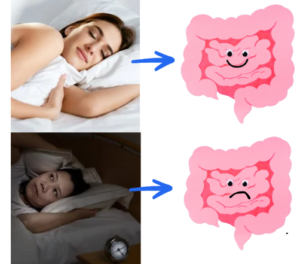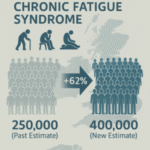Understanding the Crucial Relationship Between Quality Sleep and Digestive Health
Sleep serves as more than just a period of rest; it plays a critical role in influencing our digestive health. While the connection may not be immediately obvious, the intricate relationship between sleep and digestion encompasses a variety of physiological processes that work together seamlessly. The body’s circadian rhythm, often referred to as the internal clock, synchronises both sleep cycles and digestive functions. This alignment is evident in the way individuals typically feel hungry at consistent times each day, demonstrating how our bodies are finely tuned to natural biological cycles.
The Importance of Restorative Sleep for Enhanced Digestive Function 
Sleep is essential for the body’s ability to heal, rejuvenate, and replenish itself. The deeper stages of sleep are particularly critical for these restorative functions. During these profound stages, the organs, tissues, and cells that constitute the digestive system not only enter a state of relaxation but also engage in vital repair processes. The body prioritises cellular repair and growth during deep sleep, especially the regeneration of the cells that line the digestive tract, which are constantly subjected to wear and tear from food particles and digestive enzymes. This cellular regeneration is fundamental for maintaining the integrity of the gastrointestinal lining, thereby enhancing the overall effectiveness of digestion.
Deep sleep also plays a pivotal role in strengthening the immune system, which is especially vital for the digestive system, as it contains its own specific immune cells that are activated by the beneficial bacteria residing within the gut. These immune cells are crucial for defending the gut and the wider digestive system against harmful microorganisms, thereby ensuring a balanced population of bacteria within the gut's environment.
Moreover, the organs within the digestive system play a vital role in detoxification, assisting in the removal of waste and harmful substances from the body. Deep sleep enhances this detoxification process by increasing the operational efficiency of the liver and kidneys, enabling these organs to function optimally. This collaborative interaction between sleep and detoxification is a significant contributor to overall digestive health and wellness.
Understanding the Relationship Between Gut Motility and Sleep Cycles
A fundamental aspect of digestion involves the effective movement of food and waste through the digestive tract, known as gut motility. This process experiences considerable changes during sleep. Both deep and light sleep see a significant reduction in the rate of gut motility. This decrease is a necessary adaptation, allowing the digestive system to conserve energy, which can then be redirected to repairing digestive tissues. This energy conservation allows the digestive process to function more effectively when awake, optimising both nutrient absorption and waste elimination.
The migrating motor complex is a series of contractions that occur during fasting periods, including during sleep. This cycle is crucial for gut motility, effectively sweeping away food particles and any residue that may linger in the digestive system. This natural cleansing mechanism of the digestive tract minimises the risks of bacterial overgrowth, thereby promoting a healthy gut environment. Notably, the migrating motor complex is most actively engaged during the night when individuals are fasting and asleep, underscoring the essential role of sleep in protecting the health of the digestive system.
As dawn breaks, gut motility gradually increases, preparing the digestive system to efficiently process and digest food. This upsurge in motility can also prompt the first bowel movement of the day, exemplifying the finely tuned relationship between sleep and gut motility. Understanding this connection is vital for optimising digestive health and enhancing overall well-being.
Investigating Hormonal Interactions Between Sleep and Digestion
Ghrelin, often termed the hunger hormone, is a significant hormone that stimulates appetite. In contrast, leptin informs the brain that the stomach is full, helping to prevent overeating. Together, these hormones play a crucial role in appetite regulation, but their functions can be negatively impacted by insufficient sleep.
Even just one night of poor sleep can lead to elevated levels of ghrelin, which can spike appetite and often result in cravings for carbohydrates. This experience is frequently described as being ‘hangry’. Compounding this issue, levels of leptin can drop after a night of inadequate sleep, disrupting the signals that indicate fullness. Consequently, individuals may overeat and opt for unhealthy food choices while struggling to recognise their body's cues to stop eating. Although occasional poor sleep may not have severe consequences, chronic insomnia can lead to significant digestive problems, including inflammation in the gut, liver disorders, gastroesophageal reflux disease (GERD), inflammatory bowel disease (IBD), and even colorectal cancer, along with contributing to weight gain.
Impact of Sleep Disruption on Digestive Health
Disruptions to sleep can lead to a range of digestive issues. Factors such as shift work, particularly night shifts, and experiencing jet lag can significantly disturb sleep patterns and disrupt the body’s internal clock. Moreover, eating late at night or having irregular meal times can adversely affect the quality of sleep. The circadian rhythm that regulates sleep is closely linked to natural sunlight, which is crucial for maintaining a healthy sleep-wake cycle.
Regrettably, in today's technology-driven world, many people spend the majority of their daytime indoors, resulting in reduced exposure to natural light. This shift has led to increased exposure to blue light emitted by electronic devices such as laptops, televisions, and smartphones, further disrupting the sleep cycle and sleep patterns, especially when this exposure happens shortly before bedtime.
The cumulative effects of these factors can culminate in serious digestive issues, including diarrhoea, ulcers, inflammatory bowel disease, or an imbalance between beneficial and pathogenic bacteria in the gut. This imbalance can also compromise the gut lining, complicating matters regarding digestive health.
Enhancing Microbiome Health Through Quality Sleep
The microbiome encompasses trillions of microorganisms residing in the gut, primarily consisting of beneficial bacteria known as probiotics, along with viruses, fungi, and potentially harmful bacteria. These microbes are essential not only for overall health but also for digestive health. They enhance immune responses and assist in digestion, facilitating the production of specific vitamins, enzymes, hormones, and amino acids. Recent research has underscored a significant link between the microbiome and sleep, indicating that disrupted sleep or chronic insomnia can negatively affect the balance of these microbes, ultimately impacting digestive health and overall well-being.
Deciphering the Interactions Between Microbiome Health and Sleep Quality
The relationship between sleep and microbiome health is intricate and multifaceted. Poor sleep can adversely affect microbiome health, while an imbalanced microbiome can also negatively influence sleep quality. To grasp this complex interplay, one study revealed a correlation between a higher abundance of certain bacterial types in the gut and quicker sleep onset, along with fewer awakenings during the night. Although this article cannot explore all the findings in detail, the key takeaway is that fostering a diverse and abundant population of beneficial bacteria in the gut is essential for achieving optimal sleep, effective digestion, and maintaining overall health.
Investigating the Connections Between Stress, Sleep, and Digestive Health
A frequent outcome of stress and anxiety is disrupted sleep. Conversely, these mental health challenges can also detrimentally affect the physical health and functionality of the digestive system. Such disruptions can lead to altered gut motility and contribute to issues such as indigestion, ulcers, and irritable bowel syndrome. A critical component in this dynamic is the impact of the so-called stress hormone, cortisol.
The Impact of Cortisol on Digestive Processes
When cortisol levels rise, the body responds by entering a fight-or-flight state. This physiological reaction results in blood flow being redirected to critical areas such as the heart, brain, lungs, and muscles, while diverting it away from the digestive system. This response prepares the individual to either confront danger or escape, a reaction that was vital for survival in ancient times.
In modern times, however, stressors are often less life-threatening, manifesting as financial issues, workplace pressures, or inadequate sleep. While short-term redirection of blood flow may be beneficial in acute situations, chronic stress can have detrimental effects on the digestive system, particularly regarding gut motility. This can lead to symptoms such as constipation, diarrhoea, indigestion, gas, and bloating. Therefore, implementing effective stress management techniques is essential for supporting both gut health and achieving quality sleep.
Ensuring sufficient sleep is vital for maintaining a healthy digestive system, as the connection between sleep and digestion is inherently intertwined. Prioritising effective sleep hygiene practices is crucial for achieving restorative sleep. This includes minimising exposure to blue light from electronic devices, adhering to a consistent sleep schedule, creating a cool, dark sleep environment, avoiding food intake within two hours of bedtime, and ensuring ample exposure to natural light during the day, particularly in the morning.
References
Understanding Digestive Health and Circadian Rhythms
Exploring Sleep Dysfunction and Digestive Conditions
Examining the Link Between the Gut Microbiome and Sleep
Investigating Stress and Its Effects on the Digestive System
The Article: How Sleep Affects Your Digestive System appeared first on https://janestevensnutrition.com
The Article: Sleep’s Impact on Your Digestive System Explained appeared first on https://janestevens.net
The Article Sleep’s Impact on Digestive Health Explained Was Found On https://limitsofstrategy.com

